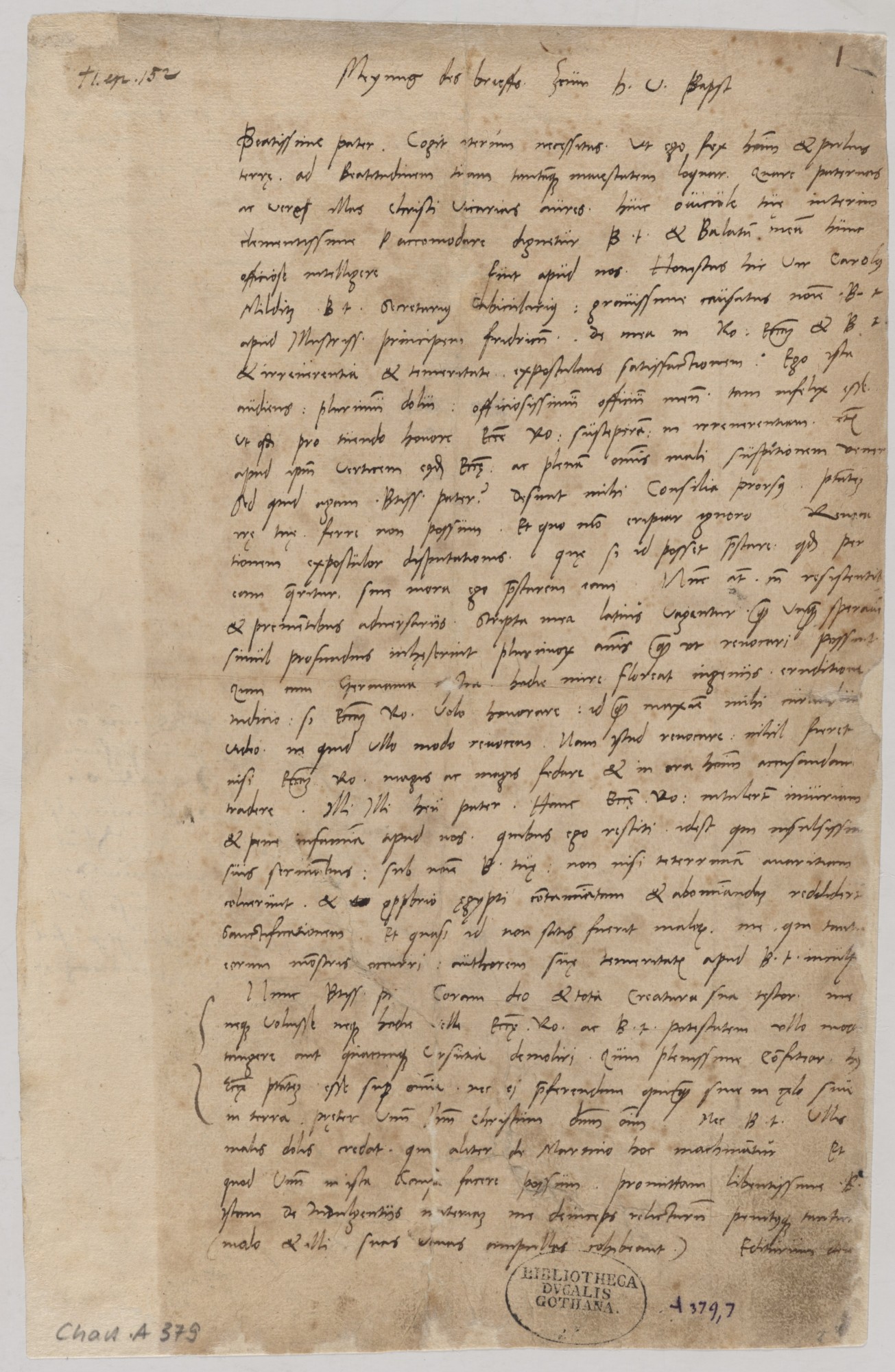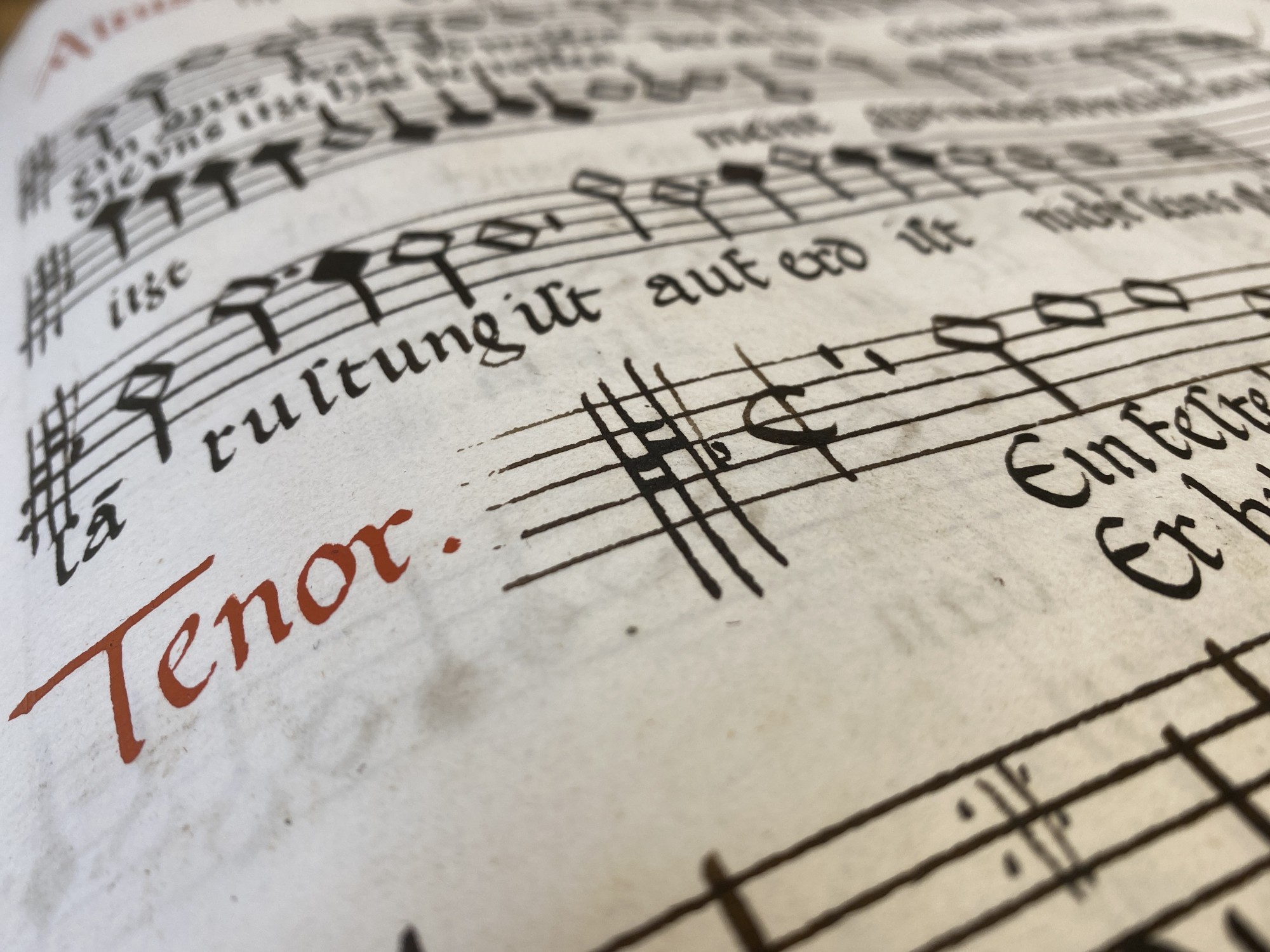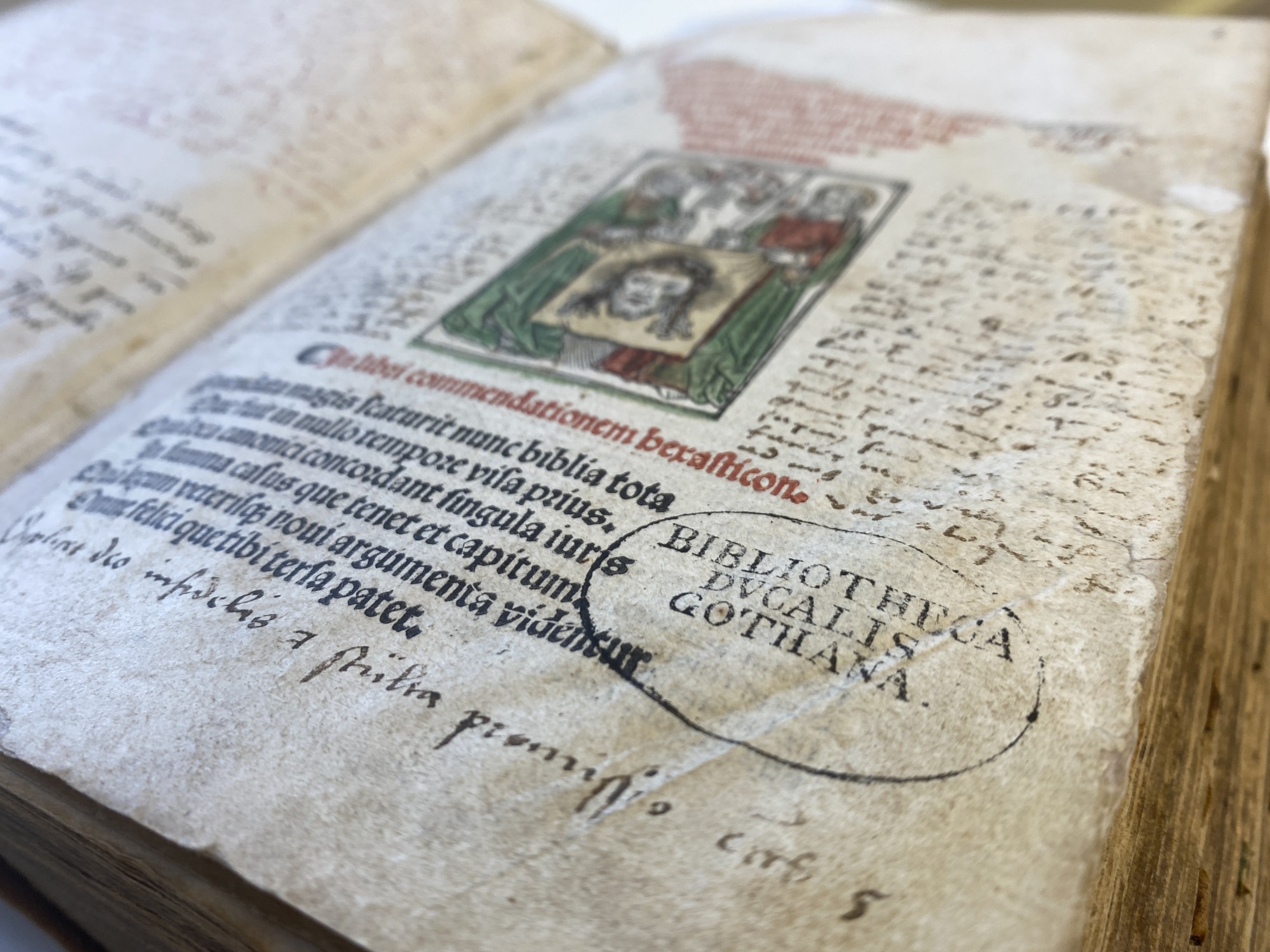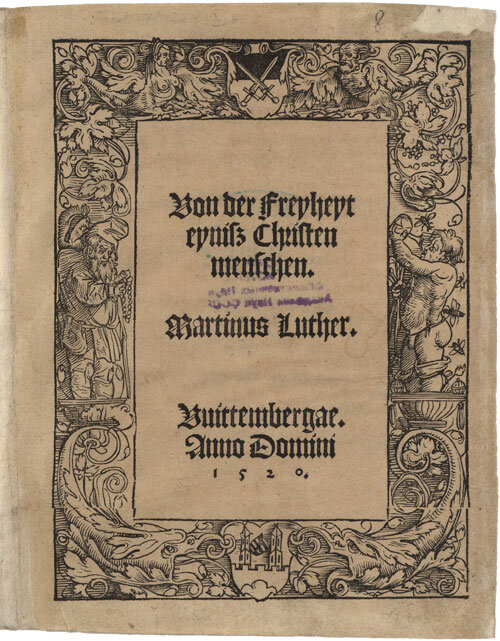
Cultural History of Protestantism
There is a close link between Gotha and the Reformation. Members of the Ernestine dynasty perceived themselves as guardians of Lutheranism and promoted the memory of the Reformation. As a result, the Ducal Library, founded in 1647, quickly became a memorial site and center for Reformation research. Prominent scholars such as Veit Ludwig von Seckendorff (1626–1692), Wilhelm Ernst Tentzel (1659–1707), and Ernst Salomon Cyprian (1673–1745) represent this development. The Gotha superintendent Karl Gottlieb Brettschneider (1776–1848) also provides evidence of the excellent sources available at the library through his edition of Philipp Melanchthon’s writings as part of the Corpus Reformatorum. Especially in the first hundred years of the Ducal Library, the collection on Reformation history was intensively expanded and developed. It allows for the study of the Reformation and its reception on a cross-denominational and European level.
Among its outstanding manuscript collections, the Gotha Research Library preserves four core collections on Lutheranism from the 16th to the 18th centuries. Century: Reformation manuscripts from the 16th century, the legacies of the Lutheran theologians Johann Gerhard (1582-1637) and Johann Ernst Gerhard (1621-1668), the correspondence and life documents of the scholar and statesman Veit Ludwig von Seckendorff (1626-1692), and the legacy of the Lutheran theologian and Gotha library director Ernst Salomon Cyprian (1673-1745). The library is thus a reference collection for the central German and adjacent North German region.
From the collection
Explore digital services
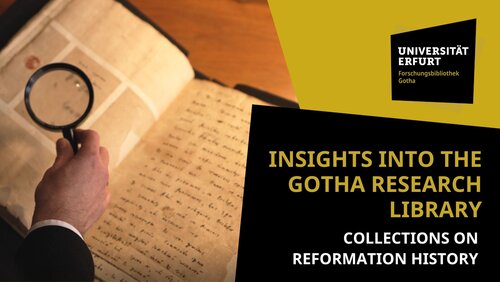
Insights into the collections of Reformation history
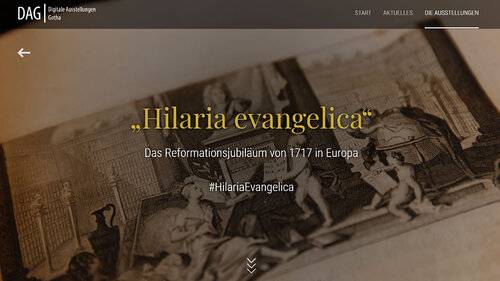
Digital exhibition “Hilaria Evangelica”
Exhibition on the celebrations commemorating the 200th anniversary of Reformation in 1717 as documented by Ernst Salomon Cyprian, one of the central works of Protestant memorial culture.
UNESCO World Documentary Heritage
The Research library preserves in its collections the Freedom Pamphlet written by Martin Luther in 1520, designated as a UNESCO World Documentary Heritage.
View the Freedom Pamphlet on display in the exhibition:
“Key Documents from Luther's Early Impact”. Virtual exhibition of the Leibniz Institute for European History in Mainz
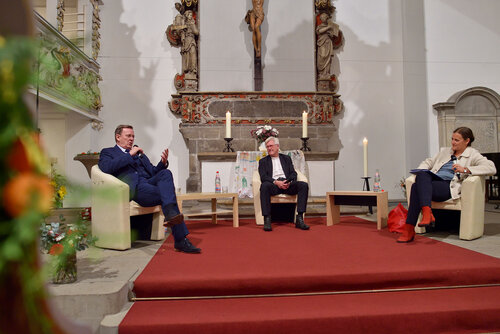
Dialogue
Conversation: What Does Freedom Mean Today? 500 Years of Luther’s Main Writing on the Freedom of a Christian Man with Heinrich Bedford-Strohm and Bodo Ramelow. Hosted by Catherine Newmark.
For further reading
- Sascha Salatowsky zusammen mit Karl-Heinz Lotze (Ed.): Himmelsspektakel. Astronomie im Protestantismus der Frühen Neuzeit (= Veröffentlichungen der Forschungsbibliothek Gotha, Vol. 54), Gotha 2015. online
- Sascha Salatowsky: Im Kampf um die Seelen – Glauben im Thüringen der Frühen Neuzeit (= Veröffentlichungen der Forschungsbibliothek Gotha, Vol. 55), Gotha 2017.
- Sascha Salatowsky zusammen mit Michael Stolberg (Ed.): Eine göttliche Kunst. Medizin und Krankheit in der Frühen Neuzeit (= Veröffentlichungen der Forschungsbibliothek Gotha, Vol. 55), Gotha 2019.
- Daniel Gehrt/Sascha Salatowsky (Ed.): Aus erster Hand. 95 Porträts zur Reformationsgeschichte. Aus den Sammlungen der Forschungsbibliothek Gotha. Katalog zur Ausstellung der Universitäts- und Forschungsbibliothek Erfurt/Gotha vom 5. April bis 31. Mai 2014, Gotha 2014. online
- Sascha Salatowsky (Ed.): Gotha macht Schule. Bildung von Luther bis Francke. Katalog zur Ausstellung der Universitäts- und Forschungsbibliothek Erfurt/Gotha in Zusammenarbeit mit der Stiftung Schloss Friedenstein Gotha vom 28. April bis 4. August 2013, Gotha 2013. online
- Kathrin Paasch (Ed.): „Mit Lust und Liebe singen“. Die Reformation und ihre Lieder. Begleitband zur Ausstellung der Universitäts- und Forschungsbibliothek Erfurt/Gotha in Zusammenarbeit mit der Stiftung Schloss Friedenstein Gotha vom 5. Mai bis 12. August 2012, Gotha 2012.
Contact Information
University of Erfurt | Gotha Research Library
Friedenstein Palace
Schlossplatz 1
D-99867 Gotha
